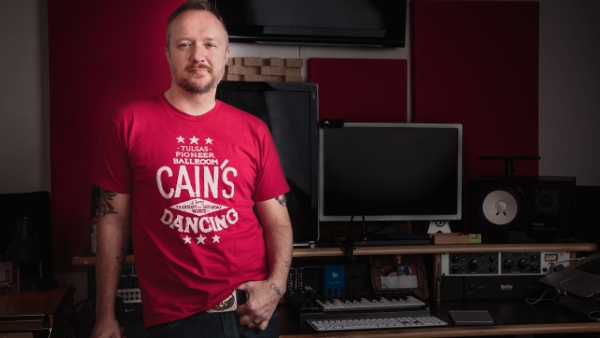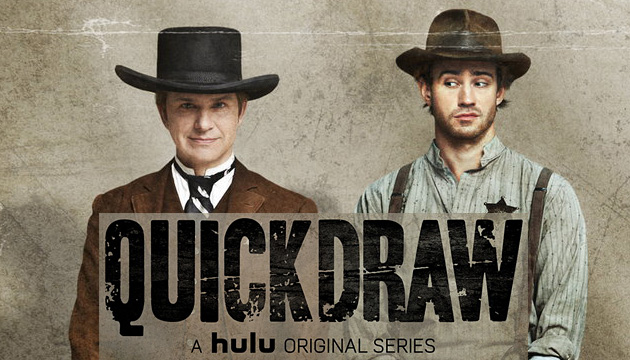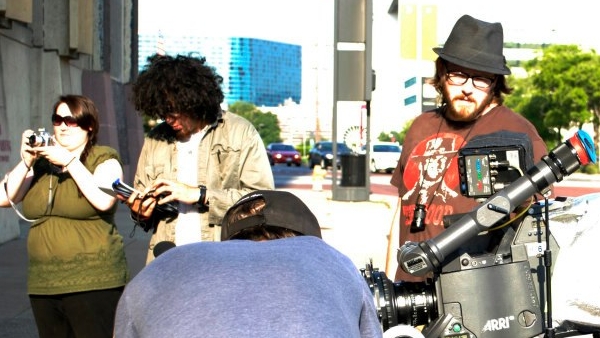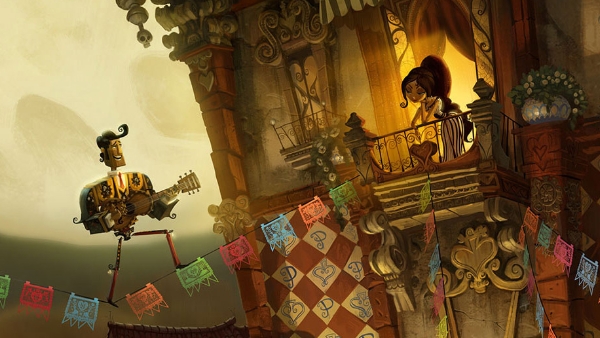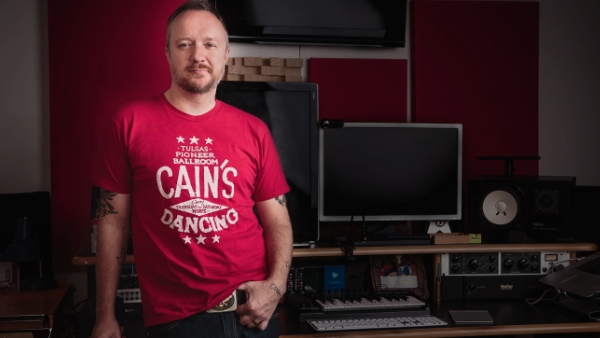 Darius Holbert is an award-winning composer of music for film, TV, and new media and has written scores for a gaggle of international films and television shows. Less than a decade in the industry he’s already been afforded the opportunity to work with such film and TV luminaries as Robin Williams, Kevin Spacey, Bobcat Goldthwait, J.J. Abrams, and many more. His work has even been featured in hit TV shows like American Horror Story, Lost, The Client List, Grey’s Anatomy, American Idol, and Crash.
Darius Holbert is an award-winning composer of music for film, TV, and new media and has written scores for a gaggle of international films and television shows. Less than a decade in the industry he’s already been afforded the opportunity to work with such film and TV luminaries as Robin Williams, Kevin Spacey, Bobcat Goldthwait, J.J. Abrams, and many more. His work has even been featured in hit TV shows like American Horror Story, Lost, The Client List, Grey’s Anatomy, American Idol, and Crash.
Aside from scoring to picture, Darius has been commissioned to compose operas, modern dance pieces, and chamber works. He has appeared on a ton of records from various projects, including four albums from his critically acclaimed solo project “dariustx“. There is a wealth of music in Darius’ extensive catalog, all of which is represented by numerous non-exclusive licensing companies, various managers, and publishers. He is an award-winning, well trained multi-instrumentalist, vocalist, producer, composer, and conductor.
But more than anything else, Darius is really just a down-to-earth guy from Texas who works really hard, who hates bragging about himself (he swears), and who loves his job. Darius is a member of ASCAP, SCL, and AFTRA and with studios in Los Angeles and New York City splits his time between LA, NYC, and TX. Below are some highlights of our time with this true musical chameleon and local Texas native.
GST: Darius, your work is all over the map which seems to be the way most great modern composers become big names. Let’s start by talking about what kind of projects you prefer to work on, as well as the ones that are the most creatively challenging.
DH: I like working on good projects. I know that sounds totally ridiculous, but if a project is good, it’s a great reason to get out of bed in the morning. If it sucks, well, you know how that goes – I have a very comfortable bed that is worth staying in. I’m amazingly lucky enough now to be able to pick and choose what I do, so I try my best to pick only bonafide champs!
GST: Synth scores allow musicians to give a weighty sound to a film/show as well as being a little more economical for smaller projects. It’s probably an obvious question but do you prefer the more concise and intimate process (small recording sessions, digital soundscapes, etc.), or the large orchestra sound?
DH: That’s a fine question. Some folks will undoubtedly roll their eyes at this, but I prefer working solo or with a small team digitally. The power associated with a 70-piece orchestra at Capitol Room A is undoubtedly obvious, but it’s also big and bulky, with a ton of fingers in the pie, and generally unwieldy.
I like to work fast and light – it makes me have a ton more lateral room for changes and to make huge mistakes without a lot of blowback. And mistakes are often how the great musical moments start.
GST: I’ve heard Robert Rodriguez say something like that as he too works in small circles, either by himself or with composer Carl Thiel. I know you studied at London’s Royal Academy of Music and here at the University of North Texas. But like so many professions that have “on the job training”, how well do school and the real world meet up in the music industry? Are you still learning as you go?
DH: I’m absolutely still learning. There are always things to learn when you’re in a creative pursuit. I still try to play out with brand new people (I don’t mean brand-new people like *babies*
here, although that might be interesting – more like people I’ve never played with before or people that bring a disparate slant to music that I wouldn’t normally get), I try to work with a ton of new production teams, I even try to get into other facets of production which I find really helps inform the score. My new thing is to make filmmakers I’m working with put me in the movie as a walk-on actor these days. It’s just background work, but I’m already hearing Oscar buzz. Mainly from this dude Oscar on my street who makes this weird buzzing noise.
GST: Last year you worked with Chris Bell on the Peter Berg produced documentary “Trophy Kids” as part of HBO’s State of Play series. What’s it like working with Peter and is there a different approach to scoring something that is real life as opposed to “reel life”?
DH: That doc was so mind-blowing, there’s no way you could even write characters like that if you tried. That actually helped me approach it in the same way I’d score a narrative piece; it’s pretty similar in approach since there are defined characters all with their own trajectories. It was an honor to work on that film.
GST: You’ve been in the business for nearly a decade. Tell us about your influences and personal tastes and how/if they’ve changed as a result of having worked with so many different directors and music personalities.
DH: I just like working with smart, energetic people on quality stuff. I like to work all the time, so I welcome all new projects. I also like to work on multiple projects at once so I can bounce back and forth.
Even if I only have one feature on the schedule, I’ll pick up a student project to jump to whenever the feature gets too immersive. It helps me stay fresh and I get to work on cool projects with young filmmakers. I’m not sure if that answered your question, but there you have it.
GST: When you work on genre films, like the upcoming horror flick “Old 37”, what kind of research do you do? Are there go-to scores for horror, or action you think are landmark or define the genre? Or is every film really its own animal?
DH: There are always benchmark scores in every genre that are touchstones. I typically try to stay away from listening to a lot of horror if I’m working on a horror picture though – I really try to keep an original sound – I don’t want to be a jukebox. But there are scores that I’ll reference in my writing, consciously and unconsciously. It’s like T.S. Eliot said “Good artists borrow, great artists steal!”
GST: The Hulu series “Quickdraw” (which is hilarious by the way) is considered a “TV show” so does it run on a typical TV schedule? What were your responsibilities/deliverables?
DH: That show is a blast to work on! I can’t wait for Season 2. It was one of the 1st to get picked up as original programming by Hulu, so it was a little different than the TV work I’ve done in the past.
The delivery schedule was not nearly as regular as a network show would be, but Hulu is different than Netflix, say, in that they don’t release the entire season at once – they stagger it out, so my work schedule gets staggered too.
GST: Making a name for yourself is no easy task. Having schooling like the Royal Academy or Juilliard helps give you a jump but is there a support group out there to help funnel young talent into the industry?
DH: If there were, there would be a ton more talented folks working a lot more! Unfortunately, there’s no kind of “farm system” for this job. It’s all just being ready for the opportunity when it presents itself. I get hit up by a ton of young composers looking to break in, and I tell them all that they need to just write as much as they can, as best they can, and then present it in the best way possible. So that when you meet that important music supervisor or director, you can point them to your best stuff right away. It’s tricky and I’ve been insanely lucky this far, but it’s not for the faint of heart.
GST: Tell us about co-producing and co-writing the new Everlast album (click here for a preview). I like his “Eat at Whitey’s” album and “What It’s Like” is still one of my favorite songs. How did you two come to meet up? Do you seek out artists to work with or do they find you?
DH: With Everlast, a buddy of mine was playing keys in his band and he split to join Korn, so he asked if I could sub it. Originally it was just for a month-long European tour, but we ended up
really hitting it off and I became his musical director and even MD’ed the House of Pain reunion world tour in 2011. That was a stone cold gas. Erik (Everlast) and I are really great pals and it’s been a treat to get to work with him, ’cause we used to pump that “Eat At Whitey’s” joint in my buddy’s ’91 Prelude when I was in high school in Dallas!
We write a lot and when it came time for a new record he asked me to co-produce. We’re actually framing out a new project this year too, but it’s hush-hush for now.
GST: Working with big names like Wu-Tang Clan and Brittney Spears must have been awesome but your IMDb bio says “ask Dairus about Bobby Brown” and that got me immensely curious. OK, I’ll bite. Please, regale us with stories of Bobby B!! Another of my all-time favorite songs is “On Our Own” from the Ghostbusters II soundtrack. I know you didn’t work with Bobby on that but do tell…
DH: Oh man. You really did your homework! Next time you and I are in the room together, buy me a beer and I’ll tell you all about the Bobby sessions and how I nearly got killed twice. Unfortunately, none of those stories are fit for public consumption – I’m a family man here!
GST: Sounds good, I’ll hold you to that! Now aside from working with other artists, DariusTX is your solo project and some of your work has been used in some high profile TV shows. How does that work? A music supervisor thinks a track you did would work somewhere and then calls you in to consult? Or do you meet with them, see what they’re going for and maybe suggest a different song instead??
DH: Yep, both happen. I have a ton of work represented by a bunch of different libraries and sips (supervisors), so I get calls on a ton of stuff – sometimes sups will just find an album, or a search will get to me.
It’s a fantastic way to get the work out there with the added bonus of licensing stuff I’ve already written – mailbox money!
As a side plug, I’m currently in pre-pro on a new country duets album with the incomparable Nicole Britton. I think it’ll be released under the DARIUSTX moniker, but we’re still working it all out. I’m excited as all getout – look for it Aug 2014!
GST: Finally, out of all the original, or commissioned work you’ve done there is a wonderful little composition you scored for the oddly themed but delightful and inspiring adaptation/interpretation of the Dr. Seuss story “Oh, the Places You’ll Go”. It’s set in, of all places, Burning Man (we’ve included the video at the bottom of this post). Give us a little background on the project and your involvement in it.
DH: Well let me start by saying I had never been to Burning Man. I STILL haven’t been to Burning Man. But I’m way more interested in going than I ever was after having worked on this infinitely charming short film. I don’t remember how the filmmakers found me, but it turned out incredibly well and it really resonated with a ton of folks. I still get emails nearly every day from people all over the world telling me how much it moved them, and we did it I think 3 years ago! Like I said – I’m insanely lucky to have been able to work on so many great projects thus far. I can’t wait to start up what’s next!
Thanks to Darius for his time. “Quickdraw” is streaming on Hulu and Old 37 will hit theaters later this year but I’m looking forward to that beer and Darius’ stories about Bobby Brown!
